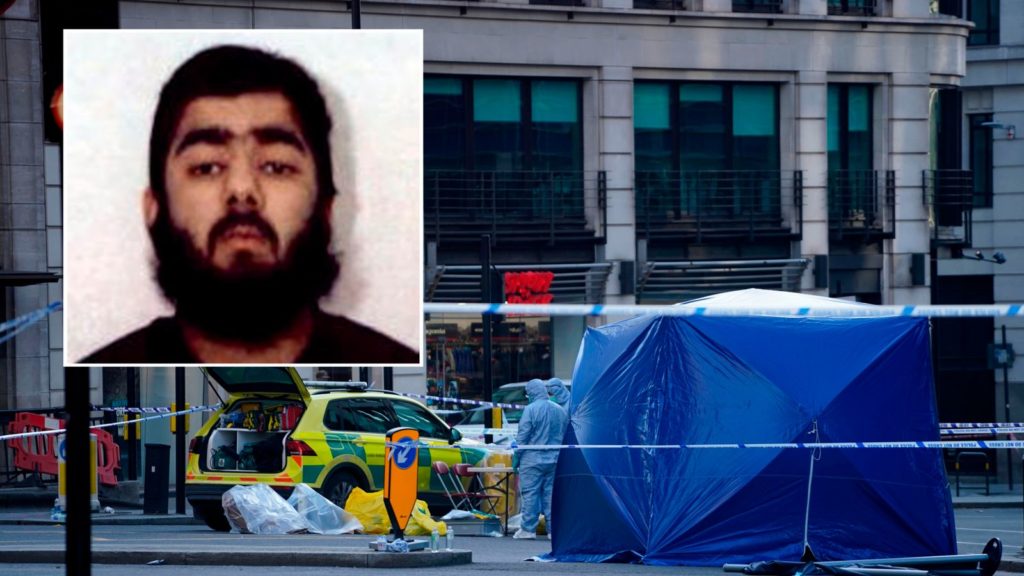The London Bridge terror attacks: political propaganda and a moral dilemma – Savannah Collis
On the 29th November 2019, a terror attack took place on London Bridge. The attacker, Usman Khan injured 3 people and killed two ex-Cambridge students: Jack Merritt and Saskia Jones in this tragic act. The terror attacks have initiated some debate about terrorists and the serving of their sentences. Politically speaking, the attacks have instigated propaganda points for parties. Jeremy Corbyn ,for example, made comments on the attacks and on the prison sentences of convicted terrorists and other serious offence criminals. Corbyn, when asked if terrorists should serve their full sentence, said, “I think it depends on the circumstances, it depends on the sentence but crucially depends on what they’ve done in prison.” Due to the ambiguity in this answer, Sky News’s Sophy Ridge said “so not necessarily then?” and he responded with “no not necessarily…”. He feels strongly about the idea of reformation*3, which I will touch upon more in the moral side to this article. Regardless of the crime committed he feels that the convicted criminal could change and therefore be released earlier; depending on their behaviour in prison.
Due to the flaws in the justice system that “allowed” the attack to occur, Boris Johnson and the Conservative party have been heavily criticised. The party have been condemned as a result of the fact the party have had 10 years to perfect the regime and they have failed. Nothing on this sort of issue was mentioned in Johnson’s manifesto and the government only took action in response to the attack, which should not have occurred in the first place. Conversely, Jeremy Corbyn and Shami Chakrabarti, who share views on shorter sentences, have also been criticised for these opinions and the way criminals are dealt with.
Boris Johnson on the other hand has a rather contrasting opinion to Corbyn, he expressed that he feels that sentences should not end early. Johnson has assured that he is trying to get as much done as he can to ensure that an event like this does not occur again and that the other (roughly) 74 people that are under similar circumstances that Usman Khan was under -such as probation rules and early release- are dealt with. Johnson, however, had no mention of his views on things such as reformation, reparation, retribution or deterrence etc.

Many people have many different views on how those convicted should be handled and how the system should work. You have different forms of justice and I personally feel that some methods apply to some crimes but not others. You have deterrence*1,protection*2,reformation*3,retribution*4,reparation*5 and vindication*6. Those of you who take RS may be familiar with these terms.
The London bridge attack was carried out by a man who was released from prison early, he was released on licence which meant he had some rules. He had to wear a GPS to monitor his movements, he was living in a bail hostel where his activity was supervised and he had to participate in the governments “Desistance and Disengagement Programme” (DDP) which is counter-terrorism counselling and psychological intervention.
A moral dilemma has been posed as to how terrorists, sexual assaulters and other serious offence criminals should be dealt with. Should we even bother trying to reform them? How much retribution is enough retribution? This now enters into the realm philosophical debate because unfortunately there is no one answer to solve all crime and justice issues.
Let’s look at the situation we have: The London Bridge attacks. Usman Khan was released early on parole due to his behaviour in prison, he has been previously convicted and the police are aware that he liaised with a terrorist group before going to prison.
Is a terrorist capable of being reformed? Maybe if the current system we have in place looked more at reforming criminals for when they go back into society, then Khan wouldn’t have killed Jack Merritt and Saskia Jones. However, did he deserve to be reformed or should the system have, in his case, focused on retribution because of what he was capable of. Would suitable retribution have helped with the deterrence of such crimes? The answer is we don’t know. As previously mentioned there’s no magic solution to our issues sadly.

If you were Jack and Saskia’s family, how would you want Usman Khan to be dealt with? If that was your mum, dad, brother, sister or friend killed in the attack, you’d probably want him to pay, I know I would. You would probably want him to have the worst prison sentence possible and you’d perhaps think someone capable of taking someone’s life didn’t deserve to be reformed whether they could be or not. Now having said that, before the attack, how would you want Usman Khan to be dealt with knowing he was going to kill your family? Then would you want him reformed so that he didn’t?
On the other side of this story, if you were Usman Khan’s family, how would you want him treated? If it were your mum, dad, brother, sister or friend who committed the crime, would you want them to pay as harshly as you just thought Khan should be dealt with if it was your family killed? Now I hope you see where the issue lies, due to so many different ways these criminals can be convicted and how many different opinion people have it’s hard to come up with a solution.
By S.Collis
*1 Deterrence- the idea of punishment that “puts people off” of committing the crime in the first place.
*2 Protection- punishment that will protect society from the criminal and protect the criminal from themselves.
*3 Reformation- a scheme to help change and reform the criminal so they are essentially a better person.
*4 Retribution- a punishment that will make the criminal pay for their actions.
*5 Reparation- punishment that compensates the victims of the crime.
*6 Vindication- a punishment that ensures the law is respected.















Post Comment
You must be logged in to post a comment.